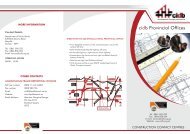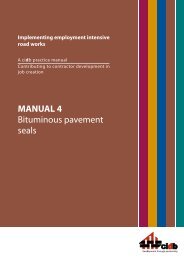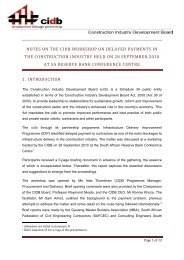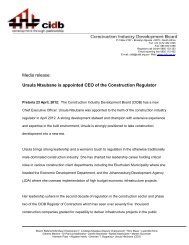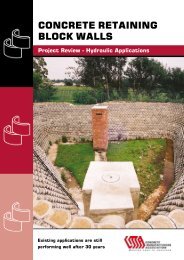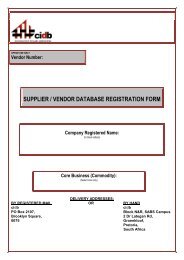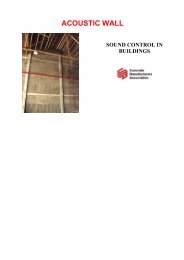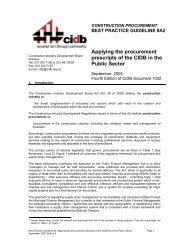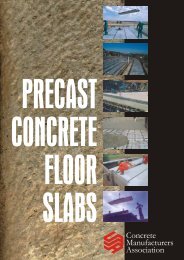Clay brick manufacture - Construction Industry Development Board
Clay brick manufacture - Construction Industry Development Board
Clay brick manufacture - Construction Industry Development Board
Create successful ePaper yourself
Turn your PDF publications into a flip-book with our unique Google optimized e-Paper software.
3.5 IRREVERSIBLE MOISTURE EXPANSION(Refer SABS 227:4.7)<br />
Burnt clay masonry units, in general, shall have an irreversible moisture expansion of not more than<br />
0,20% and, in faced applications, a demonstrated satisfactory performance with respect to durability,<br />
unless it can be reasonably demonstrated by other means that the units are fit for purpose.<br />
Burnt clay masonry units undergo an irreversible moisture expansion, which occurs as a result of the<br />
absorption of moisture from the atmosphere after firing. This expansion, which is characteristic of all<br />
porous ceramic products, commences once the unit starts absorbing moisture from the atmosphere<br />
– hence the term moisture expansion. Moisture expansion must be considered when designing and<br />
constructing a <strong>brick</strong> structure (see Figure 1).<br />
Figure 1: Typical rates of irreversible moisture expansion in<br />
<strong>brick</strong>s and <strong>brick</strong>work<br />
Notes on irreversible moisture expansion<br />
There is no difference in the expansion of perforated and solid <strong>brick</strong>s. Bricks stored in air expand in<br />
the same manner as <strong>brick</strong>s cooled from the kiln in a drier.<br />
There are no cost-effective ways of accelerating the irreversible moisture expansion of ceramic<br />
materials.<br />
The rate of expansion decreases steadily with the passage of time.<br />
11




